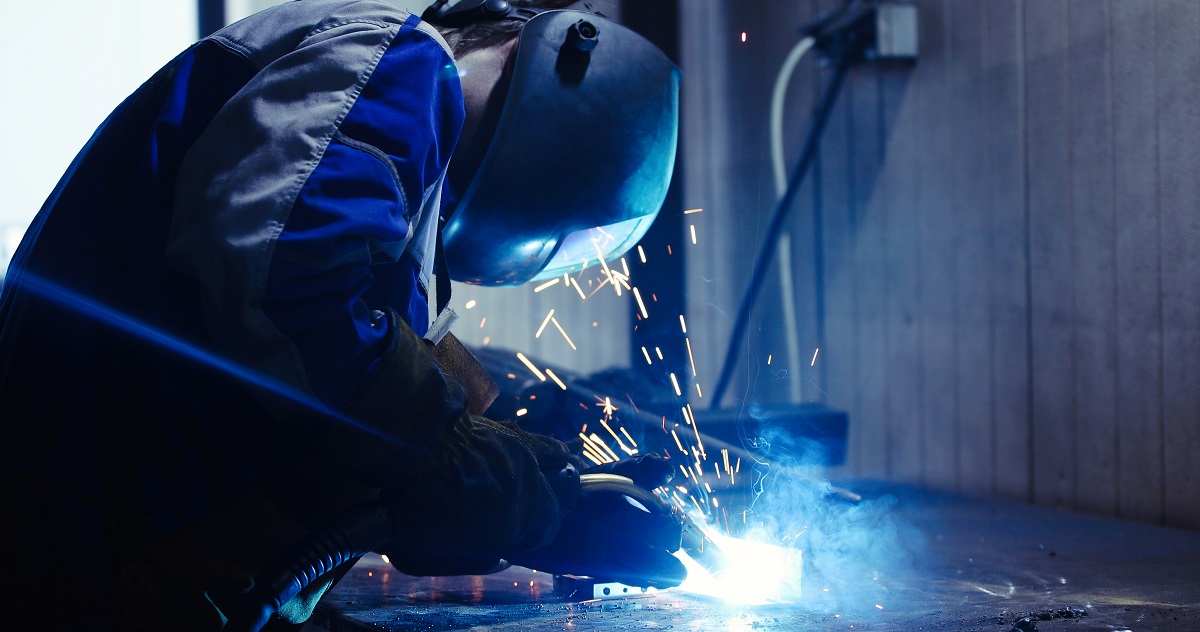A Comprehensive Guide to Identifying, Stopping, and Correcting Undercut Welding Issues in Your Welding Tasks
In the world of welding, experiencing undercut issues is a typical difficulty that can endanger the structural stability and overall high quality of your welding tasks. Keep tuned as we check out the necessary elements of identifying, protecting against, and repairing undercut welding issues, providing you with important insights and methods to elevate your welding abilities to the following level.
Typical Root Causes Of Undercut Welding
Undercut welding, a common issue in welding procedures, can be brought on by different elements that need to be carefully determined and dealt with to guarantee the stability of the weld joint. One of the main sources of undercut welding is excessive warmth input. When the welding specifications, such as voltage, current, or travel rate, are not properly set, an extreme quantity of warm can be created. This excess warmth leads to the melting and subsequent removal of the base material along the edges of the weld joint, producing a groove called undercut.
An additional usual reason of undercut welding is inappropriate welding strategy. Poor control of the soldering iron or gun, incorrect angle or range in between the lantern and the workpiece, or inconsistent travel speed can all contribute to the formation of undercut. Additionally, making use of the incorrect welding consumables or electrode dimension for a specific joint configuration can lead to undercut issues. Recognizing these origin and carrying out restorative steps is essential in protecting against and rectifying undercut welding troubles in welding jobs.
Identifying Undercut in Welds

To recognize undercut properly, correct lights and magnifying devices are essential to examine the weld joint completely. Utilizing tools such as a welding gauge or a magnifying glass can help in discovering also the tiniest undercut imperfections. In addition, running a finger or a finger nail along the weld joint can occasionally disclose undercut, as the surface area may feel unequal or have a dip where the undercut exists.
Safety Nets for Undercut
Having a deep understanding of the causes of undercut in welds allows for the implementation of reliable preventative procedures to maintain weld quality and integrity. These setups should be enhanced to prevent extreme heat input, which can lead to undercut development.

Methods for Fixing Undercut

Raising the welding current or lowering the travel speed can aid fill up in the undercut. In addition, changing the welding method from a press to a drag or vice versa can likewise aid minimize undercut.
One more strategy is to use a weaving activity while welding to guarantee correct sidewall fusion and fill in the undercut. By oscillating the welding arc from side to side within the weld joint, the welder can transfer a lot more filler product right into the undercut areas, successfully removing the problem.
In addition, grinding out the undercut and rewelding the joint can be a practical option for extra serious undercut problems - Preventing weld undercut. This procedure involves removing the undercut area, preparing the base steel, and then rewelding the joint with appropriate welding criteria and techniques to avoid undercut from repeating

Specialist Tips for Avoiding Undercut
Utilizing proper welding methods and preserving control over crucial welding specifications are vital methods for welders aiming to avoid undercut in their why not check here weld joints. One professional tip for avoiding undercut is to make certain correct joint prep work. This includes cleaning the base steel completely to eliminate any contaminants that can cause undercut formation. In addition, choosing the appropriate welding procedure and filler metal for the specific application can help protect against undercut. Welders must also pay attention to the welding existing and voltage settings, guaranteeing they are within the recommended array to prevent getting too hot and prospective undercut. Maintaining a regular travel rate during the welding procedure is one more essential idea to avoid undercut. By relocating at a consistent pace, site web welders can make sure proper blend and reduce the chance of undercut formation. Last but not least, examining the weld grain after completion can aid identify any kind of signs of undercut beforehand, permitting for instant rehabilitative action to be taken.
Verdict
To conclude, determining, stopping, and fixing undercut welding issues in your welding jobs is essential for ensuring long lasting and solid welds. Preventing weld undercut. By comprehending the usual causes of undercut, being able to recognize it in welds, implementing preventive measures, and making use of correct techniques for dealing with undercut, you can stay clear of possible concerns and develop high-quality welds. Following specialist tips for avoiding undercut can help you improve your welding skills and create much better lead to your projects
Undercut welding, an usual issue in welding procedures, can be created by numerous variables that need to be very carefully identified and dealt with to ensure the integrity of the weld joint. In addition, running a finger or a fingernail along the weld joint can often expose undercut, as the surface area might feel irregular or have a dip where the undercut exists.
Utilizing proper welding techniques and keeping control over vital welding criteria are critical methods for welders aiming to protect against undercut in their weld joints.In conclusion, recognizing, stopping, and taking care of undercut welding issues in your welding jobs is essential view for making sure long lasting and strong welds. By understanding the typical reasons of undercut, being able to recognize it in welds, executing preventative steps, and making use of correct methods for taking care of undercut, you can stay clear of prospective issues and produce top quality welds.
Comments on “Preventing Weld Undercut Made Easy: Trick Techniques Revealed”